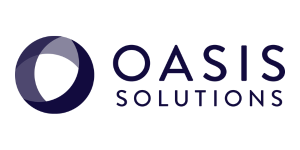New year, new resolutions… new ERP?
Transitioning to a new enterprise resource planning (ERP) solution may seem like a daunting project, but it may not be one you can afford to put off any longer.
Still intimidated? Engaging an implementation partner to guide you through the selection and implementation process relieves the burden internally and sets you up for the most successful outcome once you go-live.
We’ve outlined the top 10 reasons for a new ERP system in 2020. Is it time for your company to make the switch? Find out below.
1. Costs keeps rising
Are your costs increasing to maintain the same ERP system? Year after year, you find you’re paying incrementally more to upgrade your customized ERP solution to the newest release, just to maintain support. With a cloud solution like NetSuite, you don’t have to worry about paying for the newest version or upgrade - you are always on the most up-to-date version of the software.
2. Outdated software
You are running on a legacy ERP system and the original vendor is no longer in business or has been acquired by a company that can’t support your product needs. Either way, it’s time to migrate to a new ERP.
3. There’s no transparency across the business
You don’t have the data you need to make critical decisions about your business. Legacy ERP systems tend to be siloed, gathering data about discrete operational areas, but often can’t deliver a single source of entity-wide information. Or your legacy ERP system has become little more than an accounting tool as, over time, spreadsheets have been created to solve an immediate problem and all your critical data is now tracked outside the system.
4. Reliance on veteran IT person
Consider this a red flag: If your ERP system is being kept afloat by one or two employees with long tenures, you have a major problem. With all tickets, repairs, and changes to the system filtering through them - what happens when they leave? There’s a strong possibility your company is being held back by the system’s limitations.
5. Can’t integrate with other business systems or platforms
Legacy or outdated ERPs generally cannot integrate easily with other business systems and platforms. They rely on manual transfers of information in order to complete work orders and result in your employees working off incomplete data sets.
On the other hand, modern ERPs are easy to integrate because they have standards-based APIs. They can quickly and inexpensively connect with other systems like CRM or logistics management as well as with systems at outside firms.
6. Outdated hardware
Your hardware is still working… no problem, right? Unfortunately, over time, out-of-date equipment can get expensive and increasingly harder to maintain. With outdated hardware, you may be missing out on certain efficiencies and capabilities like mobile computing granting you anytime, anywhere access.
7. Can’t support changing business requirements
Business needs evolve rapidly, as does the way you do business. If you’re still relying on the ERP system you implemented five or ten years ago, with no additional configurations, you’re letting your ERP system dictate and limit how you do business. That’s not a formula for success.
8. Spending too much money to operate the system
An upgrade here, support there… you find yourself hiring consultants to help you deal with all the licensing costs and system changes. In the end, your legacy ERP system is ultimately costing you more time and energy than it is saving you.
9. Limited functionality
As your business scales, so should your ERP. You have expectations of it evolving with you to handle new functions and provide you the real-time reporting and data analytics tools that you need. You may also need it to handle new processes such as mobile data scanners or eCommerce. If your legacy ERP is unable to handle the functionality that your business requires, it’s time to start looking for a replacement.
10. Limited access to information
Is the data critical to run your business easily accessible or do you find yourself unsure of how to generate the reports you need in your current ERP system? Sometimes the process is so time-consuming it even requires the help of an external consultant to provide the desired information. This is not how your business should be running in 2020.
It’s Easy to Set Your Company Up For Success In 2020: Let Oasis Solutions Help
At Oasis Solutions, we put the people and the process ahead of the product to help you find the ERP system that best fits your business needs.
Whether it be Sage 100cloud or NetSuite ERP, we know that this change only comes once in a decade and we will partner with you to ensure you are set up for a successful implementation. We help businesses just like yours make an informed decision about their path to success with a new ERP system.
Let’s talk now about scheduling a free evaluation and start your journey to a new ERP with Oasis.




